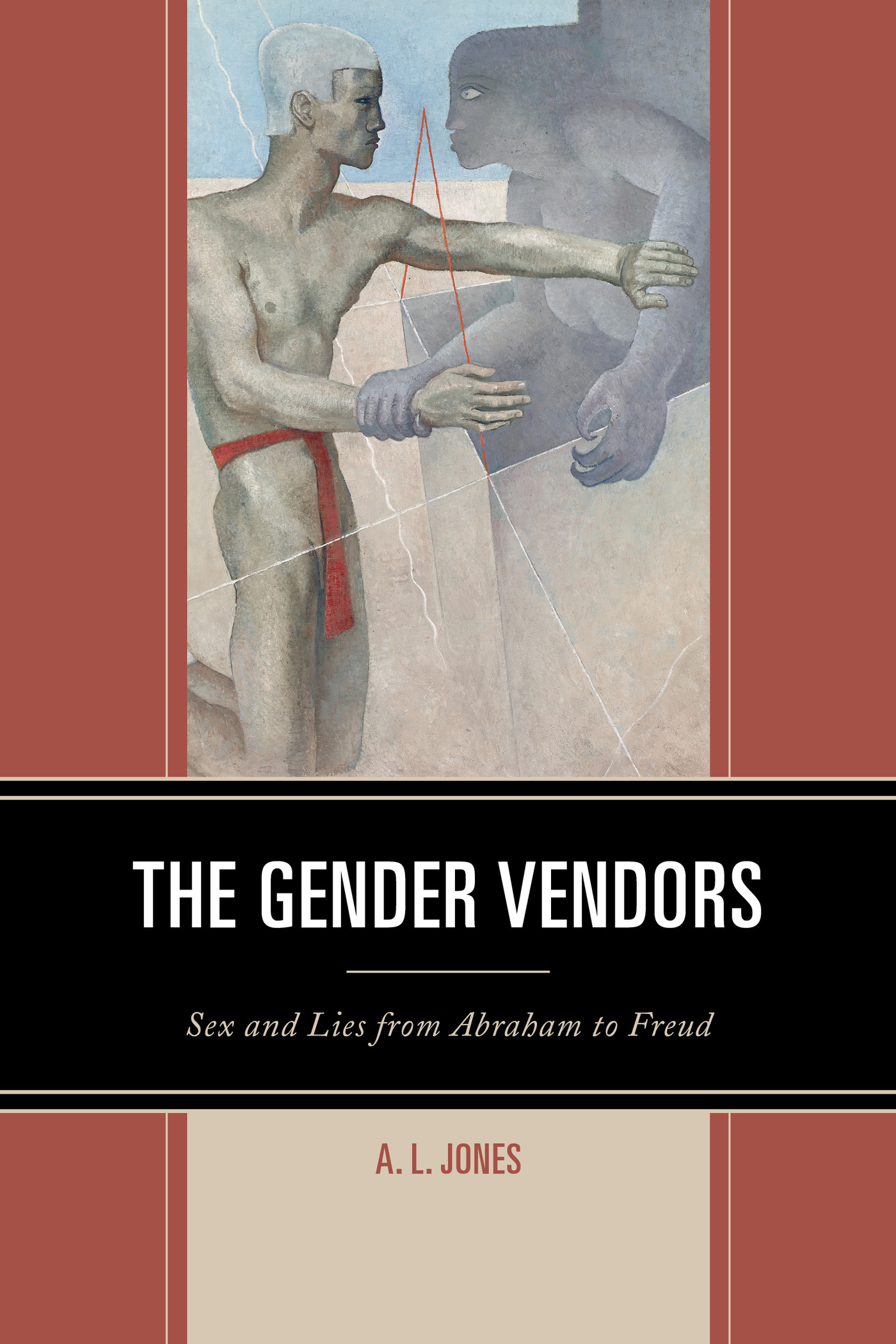The Gender Vendors
The Gender Vendors
Sex and Lies from Abraham to Freud
A. L. Jones
LEXINGTON BOOKS
Lanham Boulder New York London
Published by Lexington Books
An imprint of The Rowman & Littlefield Publishing Group, Inc.
4501 Forbes Boulevard, Suite 200, Lanham, Maryland 20706
www.rowman.com
16 Carlisle Street, London W1D 3BT, United Kingdom
Copyright 2014 by Lexington Books
Selections from The Sacrifice of Isaac: The Aqedah (Genesis 22) and Its Interpretations, edited by Ed Noort and Eibert Tigchelaar. Reproduced by permission of Koninklijke BRILL NV.
Selections from My Daughter, Malala, by Ziauddin Yousafzai, March 2014. Reproduced by permission of TED.com.
All rights reserved. No part of this book may be reproduced in any form or by any electronic or mechanical means, including information storage and retrieval systems, without written permission from the publisher, except by a reviewer who may quote passages in a review.
British Library Cataloguing in Publication Information Available
Library of Congress Cataloging-in-Publication Data
Jones, A .L., 1949
The gender vendors : sex and lies from Abraham to Freud / A. L. Jones.
pages cm.
Includes bibliographical references and index.
ISBN 978-0-7391-9096-8 (cloth) -- ISBN 978-0-7391-9097-5 (electronic)
1. Sex rolePhilosophy. 2. BiologySocial aspectsPhilosophy. 3. Nature and nurturePhilosophy. 4. Feminist theory. I. Title.
HQ1075.J66 2014
305.4201--dc23
2014020792
 TM The paper used in this publication meets the minimum requirements of American National Standard for Information Sciences Permanence of Paper for Printed Library Materials, ANSI/NISO Z39.48-1992.
TM The paper used in this publication meets the minimum requirements of American National Standard for Information Sciences Permanence of Paper for Printed Library Materials, ANSI/NISO Z39.48-1992.
Printed in the United States of America
For Suzanne
Acknowledgments
This book would not have come into being without the generosity and kindness of my family, friends, and colleagues who engendered and/or nurtured its writing and offered invaluable comment and criticism. My heartfelt thanks go to Suzanne Holly Jones, Kim Kingston, Liz MacFarlane, Nick Chare, Maree Pardy, Fran Martin, Nigel Abbott, Carol Middleton, Carol Goudie, Mitchell Kelly, Dennis Mazalin, David Green, Wasana Weeraratne Green, Mal Sweetnam, and Helen Glezer. My deep gratitude goes to an initially anonymous peer reviewer, who waived her anonymity to invite me to respond to her critical review and discuss aspects of the work in more depth; the book has benefited enormously as a result of Carol Delaneys rigorous criticism and generous assistance. I am particularly grateful to my editors, Claire Duffy, Amy King, and Kelly Blackburn, for their unswerving encouragement, goodwill, and dedication to the work. It goes without saying that the books shortcomings are entirely my responsibility. My deepest appreciation, as always, goes to my daughter and son.
Introduction:
Sex and Lies, Seed and Soil
The mother of what is called her child is not the parent, says Aeschylus, but the nurse of the newly-sown embryo. The one who mounts is the parent. Amid countless differences, what do the following have in common? Genesis, Hesiod, Aeschylus, Aristotle, chastity codes, honor crimes, the Catholic Church, the early modern witch hunts, female genital mutilation, sexual violence, the medicalization and criminalization of gender nonconformity, and campaigns against womens suffrage. Neither the question nor the answer is new. Cumulative losses of historical insight since the 1970s, however, have arguably left twenty-first-century feminist theory ill-equipped to challenge neoliberal ideology. To my question about commonalities, the obvious answer is institutionalized sexism, but what do we know of its origins? Too often, the default response is Its just human nature. This books project is to deconstruct institutionalized sexism in order to contribute to its dismantling.
Among numerous tropes about male superiority, putatively the oldest and most potent is almost invisible in its apparent naturalness. My specific objective is to denaturalize this trope, to estrange this proto-theory of the gendered body and procreation, namely, the seed and the soil, first critically discussed by cultural anthropologist Carol Delaney in 1977.
As in Aeschylus, seed-and-soil is a figurative expression for a proto-theory of male monogenesis, namely, that the father is the sole generating parent; the mother is not an equal partner in procreation but rather acts as nurturing medium, like soil, for the mans seed-child. In other words, men give life; women merely give birth.
Why does an enquiry into seed-and-soil matter for feminism? For one thing, the metaphor highlights several characteristics of gender stratification itself, including its durability, unconsciousness, and toxic power relations in the guise of innocuousness. And, as Delaney shows, the trope is older than Western thought itself and inseparable from its ancient cosmologies and creation myths. Seed-and-soil is embedded so apparently naturally as to have become invisible.
As to my specific project, I build on Delaneys ethnographic study of seed-and-soil by examining some watersheds in the history of the trope, including case studies from the Hebrew Scriptures, ancient Greece, early Christianity, the medieval Church, the early modern witch hunts, and the campaigns of the nineteenth and twentieth centuries against womens suffrage. To clarify my stance on the contested issue of historical continuities, I do not claim that seed-and-soil constitutes a continuous narrative throughout history, but I have chosen to maintain the term throughout the book in order to draw attention to how entrenched interests often serve up old standards (e.g., the innate inferiority of Woman) under new names (e.g., Woman as Eve, Woman as witch, or Woman as criminal deviant) to meet new political challenges (e.g., population decline). It goes without saying that, first, such historical continuities are chameleons on the shifting political landscape; second, their counter-narratives are of equal importance as objects of study; and third, the correlations outlined in this book are for the purpose of furthering scholarly enquiry. I make no claims of universal application and even less of causation. As my aim is to examine seed-and-soil at particular periods across millennia, of necessity I omit much of the detail, oversimplify the narratives, and leave stretches of history unsurveyed.
Psychology being my field, while my project is interdisciplinary its focus is predominantly psychological. I approach the task of estranging this largely unconscious metaphor with the deconstructive and dialectical tools of contemporary depth psychology, particularly Luce Irigarays deconstructive, psychoanalytic approach to the unconscious dynamics of texts. Immediately, the question arises as to how I ought to draw the line on transgressing the boundaries of other disciplines. I tread lightly in the less familiar territory of philosophy, history, sociology, and anthropology and when it comes to highly specialized debates I acknowledge these but refrain from commenting further.
This chapter introduces some abiding themes germane to the deconstruction of seed-and-soil. These include the historical conditions that produced it; its embeddedness in ancient Western cosmologies; its place in Aristotelian biology; and its link to ideologies of conquest. The chapter includes a section on why history matters to feminism and the tensions thus produced. Another section introduces some key ideas in the psychology of gender stratification and constructions of Woman. As in contemporary sociology, I use the term gender stratification to mean the degree to which different genders, otherwise social equals, are unequal in their access to the scarce and valued resources of their society. In addition, while seed-and-soil probably pertains to some non-Western cultures, I have confined my study to the West because space is limited. Finally, on a minor technical point, all emphases within quotation marks throughout the book are as per the original works.
Next page
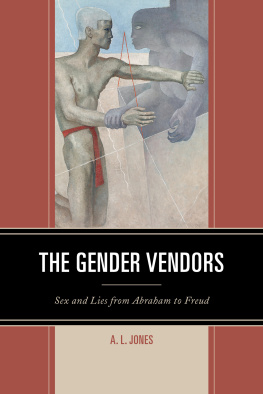


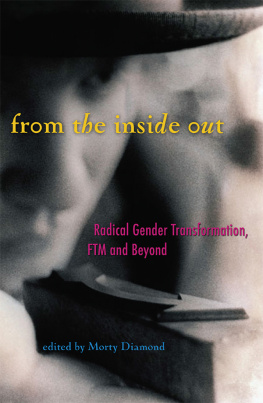

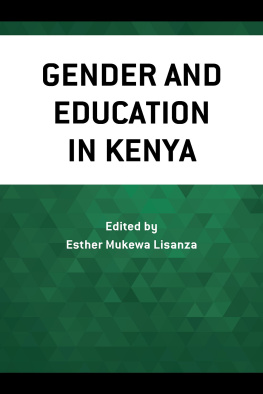
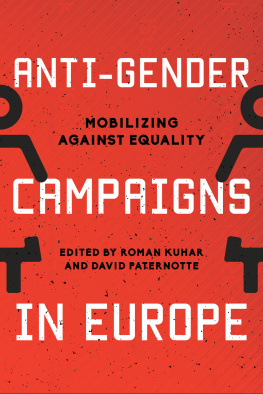
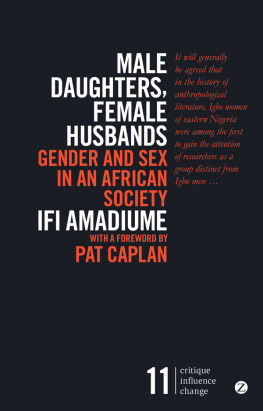

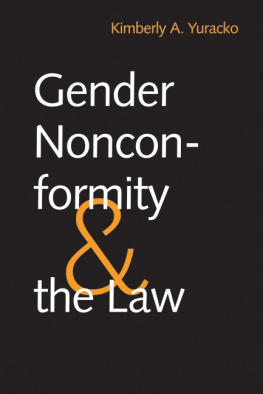
 TM The paper used in this publication meets the minimum requirements of American National Standard for Information Sciences Permanence of Paper for Printed Library Materials, ANSI/NISO Z39.48-1992.
TM The paper used in this publication meets the minimum requirements of American National Standard for Information Sciences Permanence of Paper for Printed Library Materials, ANSI/NISO Z39.48-1992.